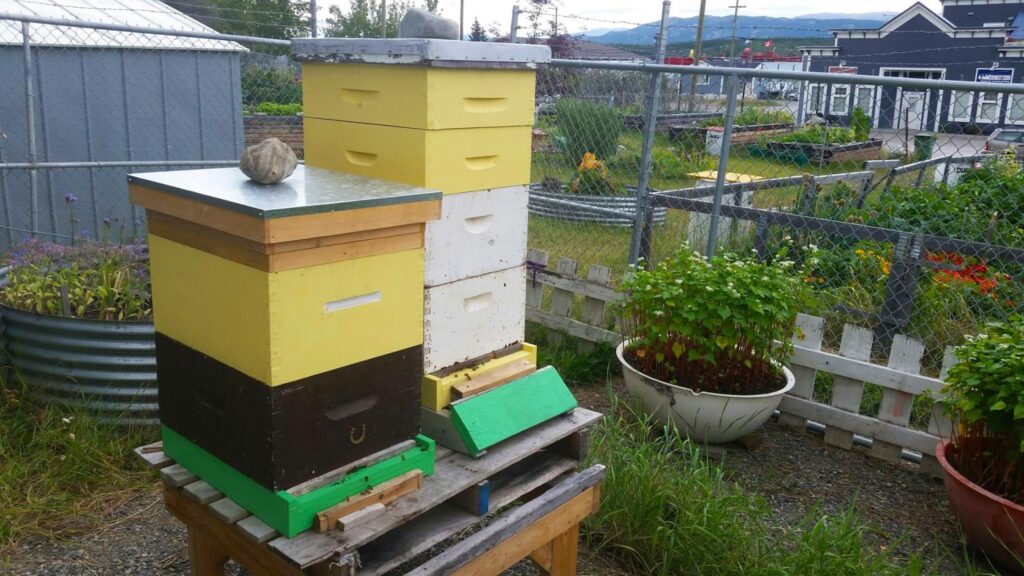Honey Bees

Pollinator Week Canada – June 17-23, 2024
Pollinator Week is an annual celebration in support of pollinator health that was initiated and is managed by Pollinator Partnership. It is a time to raise awareness for pollinators and spread the word about what we can do to protect them.
This Pollinator Week we will be emphasizing the connections between climate and pollinators. Pollinators are dying because their food and homes are disappearing, diseases have increased, and rising temperatures and natural disasters are affecting their ability to survive – all of which are related to climate change. At the same time, the conservation of pollinators and their habitats can help combat climate change by supporting healthy ecosystems, air, soil, water, and plants. Combined, these results make planet earth a safer place for us to live. These are big problems and the efforts that are made around North America and globally during Pollinator Week can help provide real solutions for the pollinators we all love.
Learn more about Pollinator Week at: pollinatorpartnership.ca/en/pollinator-week-canada
We’d also like to share a fact sheet prepared by a local student on how to create a bee-friendly yard.
Apiculture (beekeeping) is allowed within Whitehorse on properties that are zoned AG-Agriculture, RC1-Country Residential 1, and RC2-Country Residential 2, as well as at the Downtown community garden. Apiculture is a provision of the “agriculture, major” and “agriculture, hobby” uses in the City’s Zoning Bylaw. Potential changes to the City’s apiculture regulations were identified in the 2020 Local Food & Urban Agriculture Study.
If you keep honey bees on your property, consider installing electric fencing, particularly in areas with high incidence of wildlife encounters:
- Government of Yukon booklet: Reducing Wildlife Conflict with Electric Fencing: A Beginner’s Guide
- WildWise web page on electric fencing
Honey bees can occasionally swarm, mostly commonly during spring time. When a swarm occurs, about half of the bees in a hive will leave with the queen bee to start a new colony elsewhere. Typically, the swarm will rest for a short period of time within several metres of the original hive before relocating to find a more permanent location. Swarms are not typically dangerous, but can understandably make people feel uncomfortable.
If you see a swarm of honey bees, contact a local beekeeper to assist you and ideally include a photo in your email. There are many kinds of wild and domesticated bees found in Yukon; check resources online to confirm that you are dealing with honey bees. Swarms can relocate quickly, so it is important to report a swarm right away.
